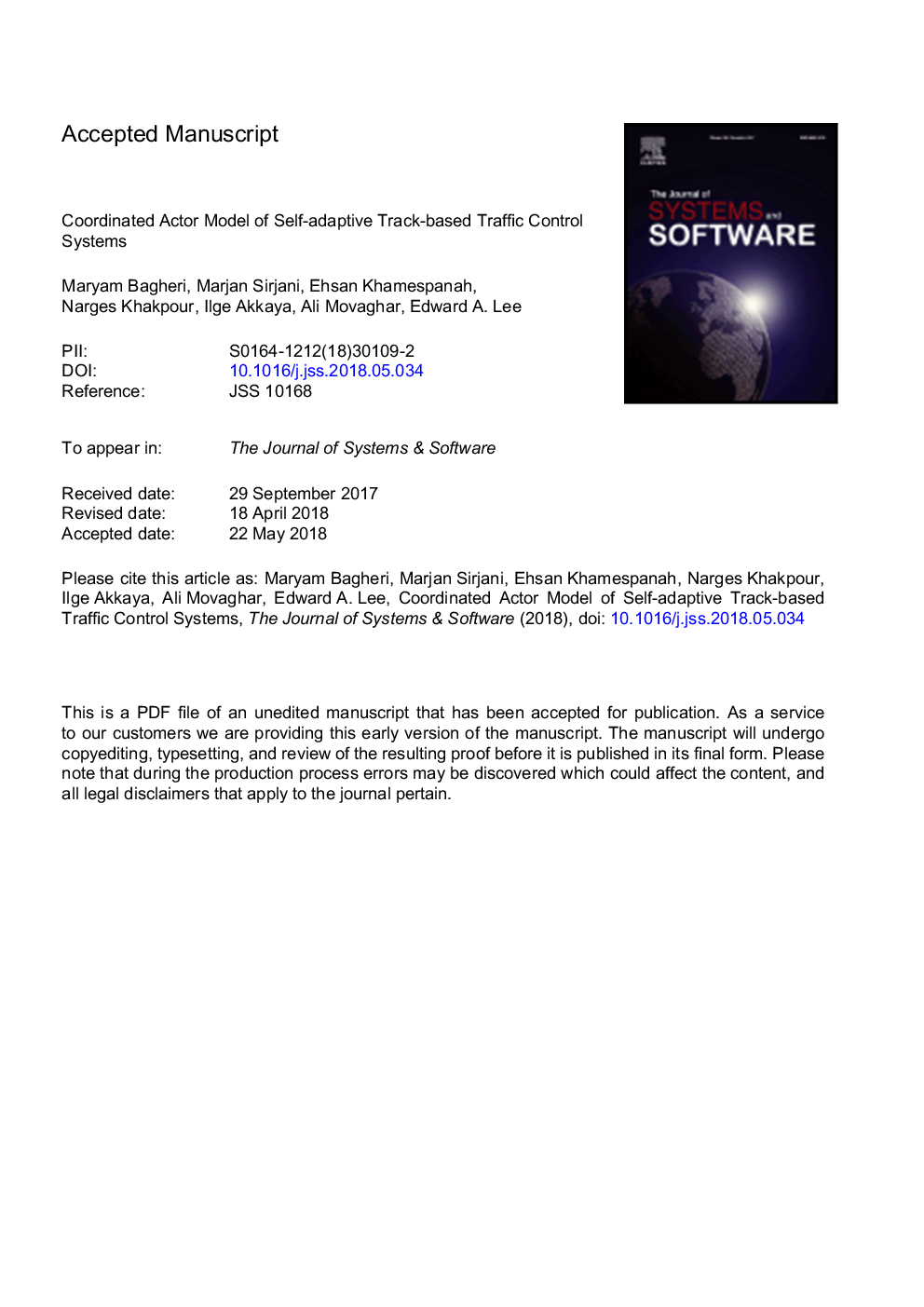| Article ID | Journal | Published Year | Pages | File Type |
|---|---|---|---|---|
| 6885283 | Journal of Systems and Software | 2018 | 38 Pages |
Abstract
Self-adaptation is a well-known technique to handle growing complexities of software systems, where a system autonomously adapts itself in response to changes in a dynamic and unpredictable environment. With the increasing need for developing self-adaptive systems, providing a model and an implementation platform to facilitate integration of adaptation mechanisms into the systems and assuring their safety and quality is crucial. In this paper, we target Track-based Traffic Control Systems (TTCSs) in which the traffic flows through pre-specified sub-tracks and is coordinated by a traffic controller. We introduce a coordinated actor model to design self-adaptive TTCSs and provide a general mapping between various TTCSs and the coordinated actor model. The coordinated actor model is extended to build large-scale self-adaptive TTCSs in a decentralized setting. We also discuss the benefits of using Ptolemy II as a framework for model-based development of large-scale self-adaptive systems that supports designing multiple hierarchical MAPE-K feedback loops interacting with each other. We propose a template based on the coordinated actor model to design a self-adaptive TTCS in Ptolemy II that can be instantiated for various TTCSs. We enhance the proposed template with a predictive adaptation feature. We illustrate applicability of the coordinated actor model and consequently the proposed template by designing two real-life case studies in the domains of air traffic control systems and railway traffic control systems in Ptolemy II.
Keywords
Related Topics
Physical Sciences and Engineering
Computer Science
Computer Networks and Communications
Authors
Maryam Bagheri, Marjan Sirjani, Ehsan Khamespanah, Narges Khakpour, Ilge Akkaya, Ali Movaghar, Edward A. Lee,
